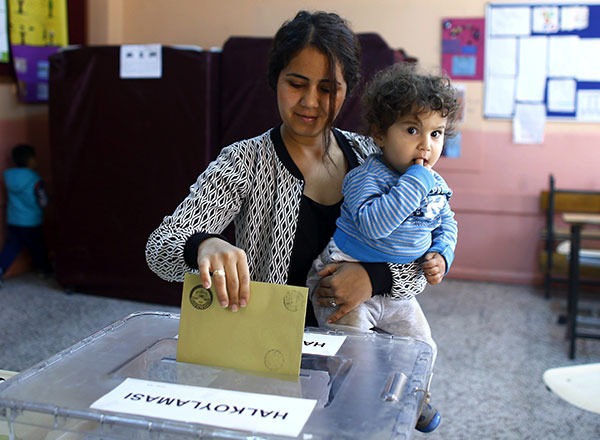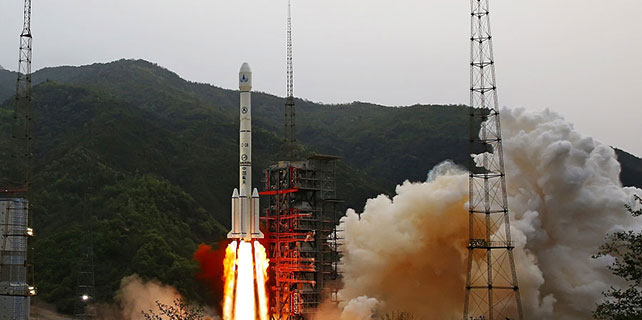Turks vote on expanding Erdogan's power
|
A woman holds a child as she casts her ballot at a polling station during the referendum at the Aegean port city of Izmir, Turkey. Osman Orsal / Reuters |
Opinion polls place 'yes' ahead in poll that could see president rule until 2029
ANKARA - Turks cast their votes in a referendum on Sunday that would give sweeping new powers to President Recep Tayyip Erdogan and herald the most radical change to the country's political system in its modern history.
Opinion polls have shown a narrow lead for a "Yes" vote, which would replace Turkey's parliamentary democracy with an all-powerful presidency and may see Erdogan in office until at least 2029.
The outcome will also shape Turkey's strained relations with the European Union.
The NATO member state has curbed the flow of migrants - mainly refugees from wars in Syria and Iraq - into the bloc but Erdogan says he may review the deal after the vote.
A crowd chanted "Recep Tayyip Erdogan" and applauded as the president shook hands and greeted people after voting in a school near his home in Istanbul. His staff handed out toys for children in the crowd.
"God willing I believe our people will decide to open the path to much more rapid development," Erdogan said in the polling station after casting his vote.
"I believe in my people's democratic common sense."
Pollsters expect a high turnout among the approximately 55 million eligible voters. Last week, many polls indicated an even split between "yes" and "no" voters.
Turks living overseas had until April 9 to cast their ballots, with more than 1 million registered to vote in 57 countries.
More than 250,000 policemen and 128,000 gendarmerie members were deployed at polling stations, while 17,000 security forces safeguarded critical locations such as power supplies and transmission units.
The country went into the referendum under a state of emergency, which was declared after a failed coup attempt in July and has been extended several times.
The referendum has bitterly divided the nation. Erdogan and his supporters say the changes are needed to amend the current constitution, written by generals following a 1980 military coup, confront the security and political challenges Turkey faces, and avoid the fragile coalition governments of the past.
Opponents say it is a step toward greater authoritarianism.
Relations between Turkey and Europe hit a low during the referendum campaign when EU countries, including Germany and the Netherlands, barred Turkish ministers from holding rallies in support of the changes. Erdogan called the moves "Nazi acts" and said Turkey could reconsider ties with the EU after many years of seeking membership with the bloc.
Kurdish militants overnight killed a guard in an attack on a vehicle carrying a district official from Yildirim's ruling AK Party in southeast Turkey's Van province, security sources said.
They said Kurdistan Workers Party (PKK) militants staged the attack in Van's Muradiye district. A second of the AKP official's guards was wounded and 17 people were detained over the attack, they added.
In the southeastern Diyarbakir province, two people were killed and one wounded in a gunfight in a village schoolyard which was being used as a polling station, other security sources said. The cause of the clash was not immediately clear.










